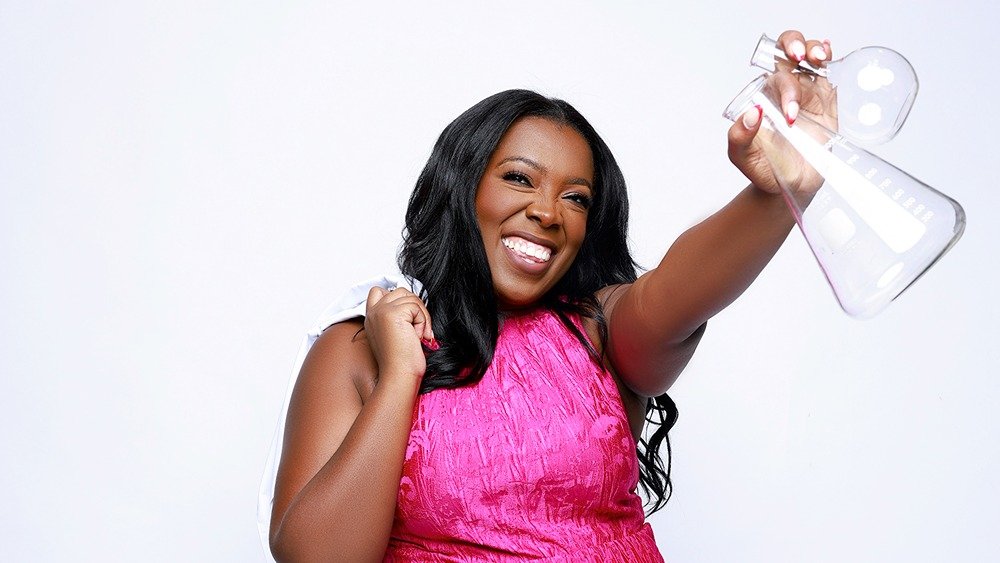Simply put, impact is about inspiring change. Organizations like State Farm® play a vital role in creating positive impact within communities by providing support and resources that accelerate ideas into streamlined operations. With all this in mind, a lack of representation across fields leaves certain groups behind. In this case, Black, female, and youth in science.
According to the NSF, three-quarters of the skilled technical workforce is male. Given these statistics and a passion for promoting STEM education for girls, Prairie View A&M University graduate Kristen Wells Collins decided to use her chemistry degree to help close the gap.
In 2020, Wells-Collins launched Black to the Lab, a STEM education learning kit that breaks down basic cosmetics and allows users to create their own makeup products. The kits are also the basis of the science and entrepreneurship curriculum that she and her team teach when visiting different schools.
“When people think of cosmetics, they automatically think of makeup, so when we start a session, we start by asking the kids, ‘What did you use this morning? What did you brush your teeth with? What did you wash your hair with?'”
According to the Pew Research Center, the main reason for this underrepresentation is that blacks (and Hispanics) have fewer opportunities to receive a quality education that prepares them in these fields: “The lack of quality resources in some schools and districts is through no fault of their own. I believe parental involvement is also a factor.”
Wells Collins’ programs have exposed Black kids to STEM careers at an unprecedented level, and when asked how profound a void she feels in the science field, she responds, “It makes sense that there aren’t Black women in these spaces. Otherwise, in 2024, there wouldn’t be class action lawsuits against chemicals in perm formulas, or ongoing debates about brands that literally use black dye just to get a deep brown color.” [Black to the Lab] Kids can really expand their thinking about where these products come from and how they are put together.”
Luckily, purposeful business endeavors like this have the support of organizations like State Farm to help propel their ideas into functioning businesses. In terms of entrepreneurship, students exposed to Black to the Lab find deep inspiration in connecting with STEM-focused careers. “There are so many different intersections depending on what your interest is or what problem you’re trying to solve. Not only that, but we also talk about 3D engineering of products and tools used in the cosmetics field.”
Wells-Collins believes STEM fields are limitless, with multiple fields within them, and ultimately, that more Black women need to be represented. “When you break down the industry itself, there are many variations that we’re involved in. There are a lot of Black women-owned brands out there right now, some of which have their own formulations. Dermatology, pharmacology, all of these are represented in STEM fields. And more importantly, early awareness inspires young girls to be more involved,” she said. [their] Combining who you are with what you have learned will multiply your value in this field.”
Individuals like Wells-Collins are at the heart of State Farm’s efforts to encourage pioneers and encourage growth and innovation within their communities. Overall, Wells-Collins hopes Black to the Lab will shift the industry in a more mass-ready direction and inspire interest in STEM fields and entrepreneurship through science. “Our goal is to get young women to see themselves not just as consumers, but as producers as well.”

